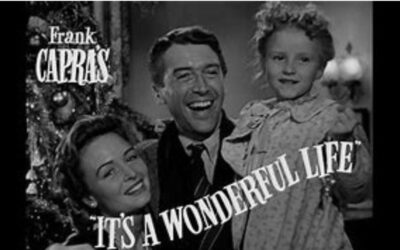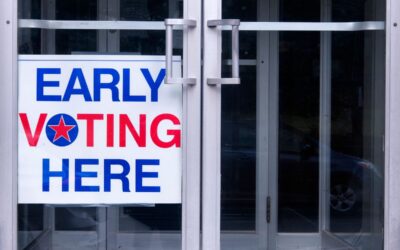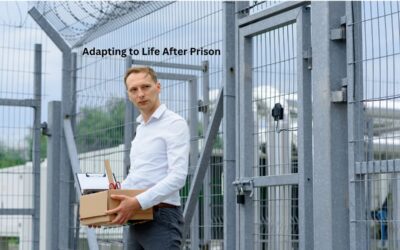A World Gone Mad: Good News – There is an Antidote
Have you noticed how angry people get at the least provocation? Because it’s so prevalent you may have just overlooked it, as it’s become the new normal. Our society has become overly emotional, meaning emotions are in the driving seat instead of reason.
In Episode 64 of Prisoner’s Pardon Podcast, we explore the impact of anger and its antidote. Our conversation begins with a reflection on a tragic shooting in Georgia, where a young individual killed several classmates. This incident epitomizes a broader issue: anger permeating our society. From road rage to our political culture, to workplace conflicts, and even within our homes and places of worship, anger is present. This overwhelming anger often leads individuals down a path of poor decisions, which often leads to poor physical health, mental health, and emotional disorders. It’s no wonder that most individuals imprisoned suffer with anger issues. Our society seems to be locked in anger mode.
Prisoner’s Pardon Podcast focuses on the concept of a pardon, which intrinsically is an act of forgiveness. In this episode, we delve into how forgiveness serves as a powerful countermeasure against anger.
Guest–Robert Dean Bell
Our guest is Robert Dean Bell, a multifaceted individual from Milwaukee. He is an AODA counselor, a pastor, a husband, a father, a business owner, and an author. We discuss his book, “Eighty Barry White Voices,” where he elaborates on the theme of forgiveness.
The title of Robert Dean Bell’s book, “Eighty Barry White Voices,” derives from his spiritual experience, where he perceived God’s voice as resonating deeply in multiple tones, reminiscent of Barry White’s distinct voice. The power of this encounter transformed his life, prompting him to explore the profound depths of forgiveness.
A Tragic Loss and a Path to Forgiveness
Robert shares a poignant part of his journey – the murder of his younger brother shortly before Robert’s release from prison. During his two weeks left in incarceration, Robert faced a critical choice: succumb to rage or seek a different path. His path led him to forgiveness, even towards his brother’s killer. In court, amidst an emotionally charged atmosphere, he chose to forgive publicly, urging the perpetrator to seek solace in faith. This act of forgiveness was a turning point, not just for Robert, but for everyone present, illustrating the power of forgiveness to shift the emotional and spiritual atmosphere. All of society needs this shift in atmosphere.
Reconciliation and Renewal
Forgiveness also played a significant role in Robert’s reconciliation with his family. He recounts an emotional moment when he publicly apologized to his mother during a graduation ceremony, fostering a renewed, heartfelt bond. This public act of forgiveness reverberated through the room, emphasizing the transformative power of sincere contrition and reconciliation. He was no longer thinking about how to save face but only about how to make things right and because of it obtained the much-needed release of peace within his heart.
Understanding True Forgiveness
Robert further illuminates that true forgiveness rarely comes with instant feelings of peace. He shares those thoughts and emotions and expresses how it is a continued, conscious decision to forgive, paired with trust in the divine process. Because of ignorance or just rejection, society’s process is devoid of God, hence now the crisis. Through scripture, particularly Ephesians 4:32 which states “and be ye kind one to another, tenderhearted, forgiving one another, even as God for Christ’s sake hath forgiven you.” Robert underscores the importance of tenderheartedness and kindness, fundamental to achieving genuine forgiveness stated here. This is the opposite of anger, which is being unkind and hard-hearted. Being hard-hearted leaves no room for forgiveness and kindness.
Forgiveness and Self-Accountability
A critical aspect of forgiveness discussed was its effect on personal accountability. Forgiving others doesn’t negate accountability; justice still takes its course. This balanced approach ensures that forgiveness paves the way for healing while maintaining justice. The justice here is the understanding that it is God who judges. This is mentioned throughout scripture. Two instances are in James 5:9 (“Do not complain, brethren, against one another, so that you yourselves may not be judged; behold, the Judge is standing right at the door”) and in Isaiah 3:13 (“The Lord arises to contend, And stands to judge the people”) and in Joel 3:12 (“Let the nations be aroused And come up to the valley of Jehoshaphat, For there I will sit to judge All the surrounding nations”). This emphatically says justice will prevail and there is no stopping it. It is God who will bring it about. He is the Judge and will settle accounts. We are to ensure our accounts are in order.
The Journey of Self-Forgiveness
A significant barrier Robert faced was forgiving himself for past transgressions. The path to genuine forgiveness leads you here to this obstacle. The scripture verse in Matthew 18:21-23 tells us how many times we are to forgive. Jesus says, “I tell you, not seven times, but seventy times seven.” What an answer. It seems hard. But if you turn it around and look at how many times you’ll need and want to be forgiven by people, it looks a lot better because you’ll see the necessity of it. Now, you’ve placed yourself in the community of needing forgiveness. This newfound knowledge, supported by his faith in Christ, allowed him to mend relationships and find peace. An unwavering decision to embrace forgiveness marked his transformation, leading to immense personal and spiritual liberation.
The Ripple Effect of Forgiveness
Robert’s journey illustrates how forgiveness can profoundly affect others. His discussions reveal that forgiveness extends beyond personal peace, impacting interpersonal relationships and broader community dynamics. His story is a testament to forgiveness’s far-reaching implications, encouraging us all to embrace it more fully in our lives.
Conclusion: A Call to Embrace Forgiveness
In conclusion, Robert Dean Bell’s narrative is a powerful reminder of forgiveness’s crucial role in addressing anger and fostering healing. All evidence points to the unmitigated fact that people are not made to carry anger and because we do, our society is being harmed as well as the individual themselves. Forgiveness is the only antidote because it is a heart issue. Robert’s story inspires us to look to have an intimate relationship with God, seek forgiveness, and offer it to others, creating ripples of positive change.
Thank you, Robert Dean Bell, for sharing your incredible journey, and for our listeners, may your week be filled with blessings and reflections on the transformative power of forgiveness.
For those interested, you can find Robert’s book “Eighty Barry White Voices” on Amazon Eighty Barry White Voices: Bell Sr., Robert Dean: 9798884767584: Amazon.com: Books.
Additionally, if you’re in Milwaukee, join him at Life Church Milwaukee on 56th and Burleigh in Milwaukee, Wisconsin. Milwaukee Campus – Life Church (churchcenter.com)
Forgiveness is powerful. Let it be the antidote to anger in your life.




